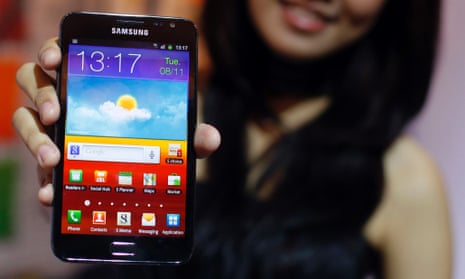Some mobile and tablet manufacturers are being charged six-figure fees by third party testing facilities for a licence to use Gmail, Google Play and other parts of Google's mobile services, the Guardian has learned.
The fees, which can range from $40,000 to $75,000, are part of a largely hidden production process for the hundreds of large and small manufacturers in the mobile device industry.
The Android mobile operating system is free for consumers and for manufacturers to install, but manufacturers need a licence to install Gmail, Google Maps and the Google Play store - collectively called Google Mobile Services (GMS).
One source told the Guardian that the fee varies and is negotiated on a case-by-case basis, with one example costing $40,000 for a batch of at least 30,000 devices. A separate source said that in another deal, a testing facility quoted $75,000 to test 100,000 devices.
A Welsh distributor, KMS Components, was put out of business in January after the retailer Argos withheld £3.2m because of a GMS licensing dispute.
"Installing Google play without a licence is illegal," said one source in the Android developer community, who did not want to be named. "Smaller OEMs [device manufacturers] don't register on Google's radar, and Google tends to turn a blind eye. Retailers get pressured by legal OEMs to make sure illegal installs of GMS are weeded out. It's almost like crowdsourcing."
